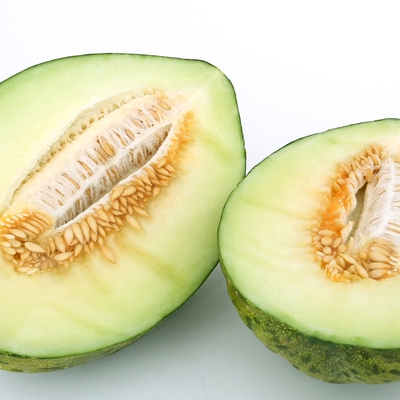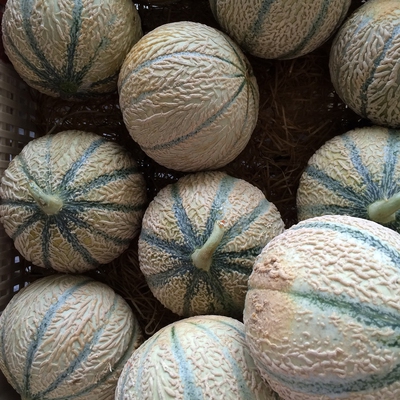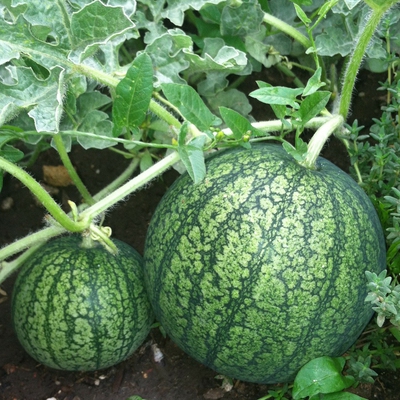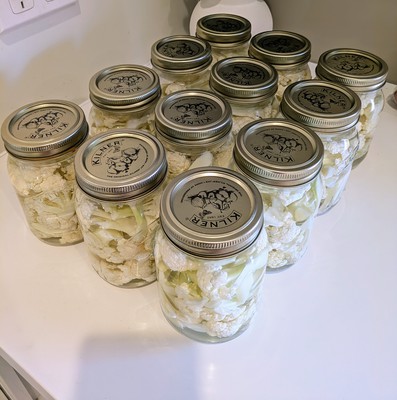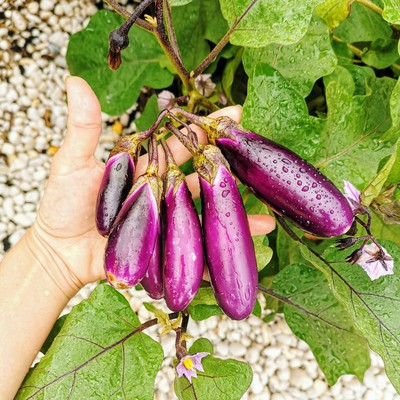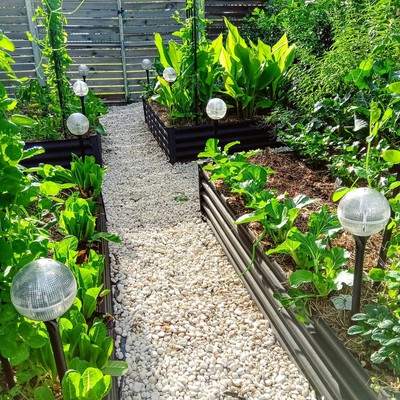Growing Watermelon
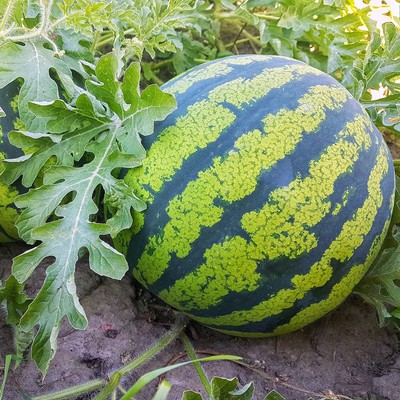
Watermelon is an attractive annual vine that produces sweet refreshing fruit. Being a warm season crop, it requires warm temperatures and a full sun position (a minimum of 6-8 hours of direct sunlight) in order to crop well. Watermelon vines prefer well draining soil that has been enriched with compost or manure, they also benefit from having plenty of room to spread. The vines enjoy a good feed of organic fertilizer throughout the growing season as well as a consistent supply of water. Watermelon vines cannot cope with frost, so it’s vital to ensure that the risk of frost has passed before planting. Seedlings can be safely planted into your outdoor veggie garden when soil temperatures have reached 21°C (70°F) or above.
There are many varieties of Watermelon, including seedless varieties, extra large or compact varieties and even ones with yellow flesh! Sugar Baby, as the name suggests is a smaller sized fruit which grows on a more compact vine. What makes this variety particularly popular is that it can be grown successfully in smaller sized veggie gardens or even in large pots.
Knowing when to harvest Watermelons can be a little tricky. A general rule of thumb is that your Watermelon should be ready for harvest somewhere between 70 to 85 days from sowing. When you are close to the harvest time, it's important to keep an eye on your melon and look out for a few simple clues. Gently lift or turn the Watermelon, if the area that has been in contact with the ground has turned a creamy/yellow colour then it’s most likely ripe. You will also notice that the tendril close to the fruit will have discoloured, losing its bright green appearance. A ripe melon will also sound hollow when tapped.
While your melons are ripening, you can avoid fruit rot by placing something underneath them to prevent direct contact with the soil. A piece of wood, cardboard or some straw will work well. Throughout the growing season, keep an eye out for diseases such as Powdery Mildew and Fusarium Wilt and pests such as Aphids and Cucumber Beetles.
For more on growing melons, or starting a vegetable garden check out our growing guides.
Happy Gardening!
